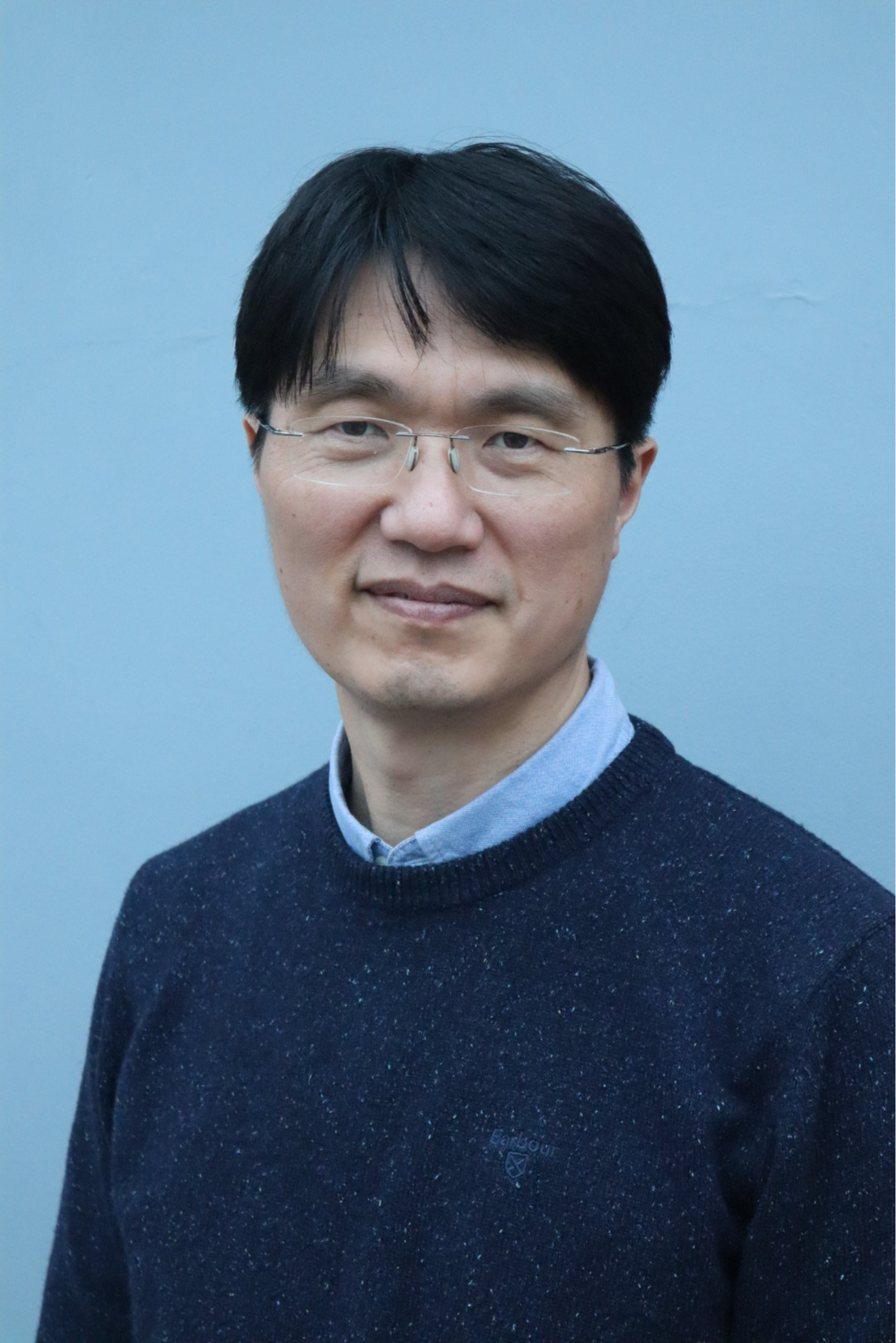Thomas is a design educator/system scientist/participatory design facilitator and an award-winning animation/film producer working in the fields of human-centred design, healthcare system design and system safety. His expertise is in applying systems thinking approaches to the design of complex healthcare systems and integrating new technologies (e.g. digital health, machine learning, wearables) into healthcare systems.
He is an Engineer by training and a Chartered Ergonomist and Human Factor Specialist. He has been an interdisciplinary researcher with the intention of bridging various disciplines (system science, behaviour science and implementation science) into healthcare system design. Thomas holds a bachelor degree (1995) and master’s degree (1997) in mechanical engineering, both from Yonsei University, South Korea, and a PhD in engineering design (2007) from Engineering Design Centre, University of Cambridge. Prior to his academic career, he worked at Samsung Electronics as a R&D engineer (1997-2000) and an internal innovative design consultant (2001-2003).
He co-founded a Human Factors and Complex Systems Research Group and leads a Systemsthinking lab. He served various boards and committees in an advisory capacity including Safe Complex Systems Programme at Royal Academy of Engineering (2020-22), World Innovation Summit for Health (2015) and Korean Society of System Safety (2019-onwards). He also serves as Scientific Advisory Board/Reviewer for various design, human factors, healthcare-related journals and conferences including Ergonomics, Safety Science, BMJ, Relating Systems Thinking and Design (RSD), Design Research Society (DRS) and more.
Research group: Human Factors and Complex Systems.
His research interest has been in applying systems thinking approaches to the design of complex healthcare systems and integrating new technologies (e.g. digital health, machine learning, wearables) into healthcare systems.
- Participatory Systems Approach to Healthcare Service Design
- Human-Centred Design: Artificial Intelligence and Wearables for People with Learning Disabilities
- Cognitive and Systems Ergonomics
- Design for Behaviour Change
- Visual Mapping of Complex Systems and Services
- Incident/Accident Investigation in Healthcare
- Resilience Engineering and Safety II
He has been involved in leading/contributing to the following research projects funded by AHRC, NIHR AIM (Artificial Intelligence for Multiple Long Term Conditions), NIHR (Global Health Policy and Systems Research) and the Health Foundation.
2022
Data-driven, machine learning aided stratification and management of multiple long-term conditions in adults with intellectual disabilities (DECODE)
Funder: National Institute for Health Research – NIHR Artificial Intelligence for Multiple Long-Term Conditions (AIM), Research Collaboration Award, 30 months, £2.8million (PI)
Partners: Leicestershire Partnership NHS Trust, University of Leicester, King’s College London, Swansea University, University of Plymouth, University of Nottingham and De Montfort University
I-SIRch: Using AI to Improve the Investigation of Factors Contributing to Adverse Maternity Incidents
Involving Black Mothers and Families
Funder: Health Foundation and National Institute for Health Research, 24 months, £180,000 (CoI)
Partner: Healthcare Safety Investigation Branch - HSIB
2021
Immunity passport service design (IMMUNE)
Funder: Arts and Humanities Research Council (AHRC), 9 months, £168,000 (CoI)
Partner: Brunel University
Mapping the challenges and requirements for data-driven, machine learning aided stratification and management of multiple long-term conditions in adults with intellectual disabilities (DECODE)
Funder: National Institute for Health Research – NIHR Artificial Intelligence for Multiple Long-Term Conditions (AIM), development award, 8 months, £120,000 (Joint PI)
Partners: Leicestershire Partnership NHS Trust and University of Leicester
2020
Assessment of Human Factors taxonomy for the aggregated analysis of maternity incident reports
Funder: Healthcare Safety Investigation Branch, 2 months, £10,000
2019
Kenya-UK development award to support the design of a whole system approach to facilitate the
functioning of the baby friendly community initiative within the Kenyan health system
Funder: National Institute for Health Research - NIHR Global Health Policy and Systems Research, 12 months, £100,000 (CoI)
Partner: African Population and Health Research Center (APHRC), Kenya
2018
Suicide Prevention in Mental Health Services: Translating Human Factors Evidence into Actionable Video – Dilemmas in Suicide Prevention
Funder: Health Education England & East of England Patient Safety Collaborative, 12 months, £25,000 (PI)
Partner: Leicestershire Partnership NHS Trust and Cambridgeshire and Peterborough NHS Foundation Trust
2017
Accelerating Systems Thinking in Healthcare Incident Investigation
Funder: The Health Foundation (Evidence into Practice), 12 months, £49,661 (PI)
Partner: University of Leicester and Cogni+ive Media
Potential research students interested in any of the areas described above are invited to contact Thomas directly.
Currently Thomas leads and contributes to the following modules for undergraduate, postgraduate and professionals:
- Healthcare Ergonomics and Patient Safety (MSc Human Factors and Ergonomics for Patient Safety)
- UX Design for Advanced Technology (MSc UX Design)
- UX Major Design Project (MA UX and Service Design)
- UX Design (BA Design)
- Healthcare Learning Pathway (short course for health and care professionals)
